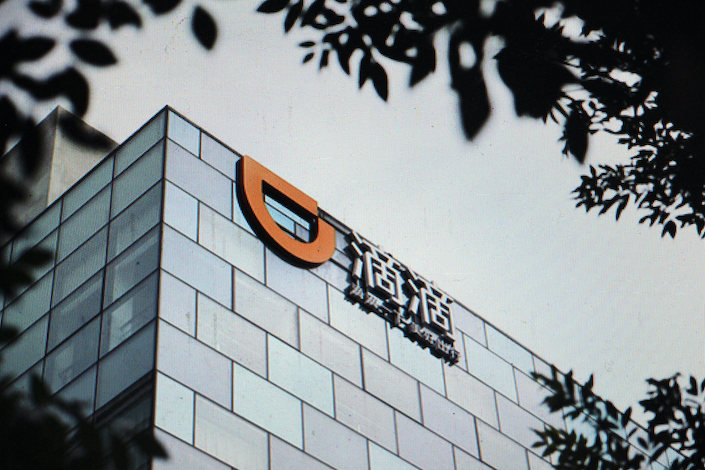Update: Didi Shares Plunge as China Initiates Security Probe

Shares of ride-hailing giant Didi Global Inc. closed down 5% Friday after Chinese regulators said they would investigate the company for national security and data risks and blocked new users from registering.
The sudden regulatory headwinds struck just two days after Didi debuted on the New York Stock Exchange, raising $4.4 billion in an initial public offering (IPO). Didi’s shares closed Friday at $15.53, still up 11% from its IPO price of $14 per American depositary share.
The Cybersecurity Review Office, an agency of the Cyberspace Administration of China, will investigate the ride-hailing service to “prevent data security risks, safeguard national security and protect the public interest,” the office said in a two-line statement (link in Chinese).
The office runs cybersecurity reviews and also sets standards. The statement cited China's National Security Law and its Cybersecurity Law.
New users will not be able to register for Didi’s ride-hailing service during the review, the office said. The review will take at least 45 business days under Chinese regulations and could drag on for twice that long. Didi said it will actively cooperate.
“We will conduct a comprehensive examination of cybersecurity risks and continuously improve our cyber-security systems and technological capacity,” the company said in a statement.
Didi’s American depositary shares opened on the Wednesday debut at $16.65, rising as much as 29% from the $14 offering price. The shares closed that day at $14.14, giving Didi a market value of about $68 billion.
In April 2020, 12 Chinese government departments led by the Cyberspace Administration of China jointly issued the “Measures for Cybersecurity Review,” requiring that critical information infrastructure operators conduct an assessment of potential national security risk exposure prior to procurement of network products or services.
If such assessment determines that the products or services to be procured present potential national security concerns, the operator must apply to the Cybersecurity Review Office for a cybersecurity review.
Although usually a review can be completed within 45 business days, it may be extended for an additional 15 days if the review is complicated. If the review enters a special review process, it will take additional 45 business days or longer.
The cyber security review will focus on national security risks, including the risks of illegal control, interference or destruction of critical information infrastructure as a result of the use of products and services, as well as the risk of important data being stolen, leaked or damaged. It will also assess damage to critical information infrastructure caused by interruptions in the supply of products and services and transparency, diversity of sources, reliability of supply channels and the risk of supply disruptions due to political, diplomatic, trade and other factors, according to the regulations.
In its IPO prospectus, Didi used 60 pages to list the risks it faces across its business, particularly legal and regulatory risks that could have a material adverse impact on its business prospects, including risks involving drivers and vehicle license and antitrust risks. The prospectus specifically notes that Didi’s IPO could require approval from Chinese regulators under Chinese law.
Chinese regulators have been tightening scrutiny of internet platform companies’ anti-competitive activities. In April, China’s market regulator and cyberspace and tax agencies summoned 34 of the biggest internet platform operators and told them to stop abusing market dominance and cease all illegal activities within one month or face “severe punishment.”
In May, China’s antitrust watchdog ordered Didi and nine other leaders in on-demand transport to halt practices from arbitrary price hikes to unfair treatment of drivers. Didi vowed to improve its payment structure for drivers and fares for users. Drivers on Didi’s ride-sharing network earn 79% of what customers pay.
Founded in 2012 and backed by Japan’s SoftBank Group Corp., Didi provides a wide range of transport services, including on-demand ride-railing, bike sharing, freight and autonomous driving. Didi’s Chengxin Youxuan, a community group-buying platform, is not included in the U.S.-listed enterprise. The unit was fined 1.5 million yuan ($232,000) by the market regulator in March for “deceptive pricing.”
Contact reporter Denise Jia (huijuanjia@caixin.com) and editor Bob Simison (bobsimison@caixin.com)
Download our app to receive breaking news alerts and read the news on the go.
Follow the Chinese markets in real time with Caixin Global’s new stock database.

- PODCAST
- MOST POPULAR






